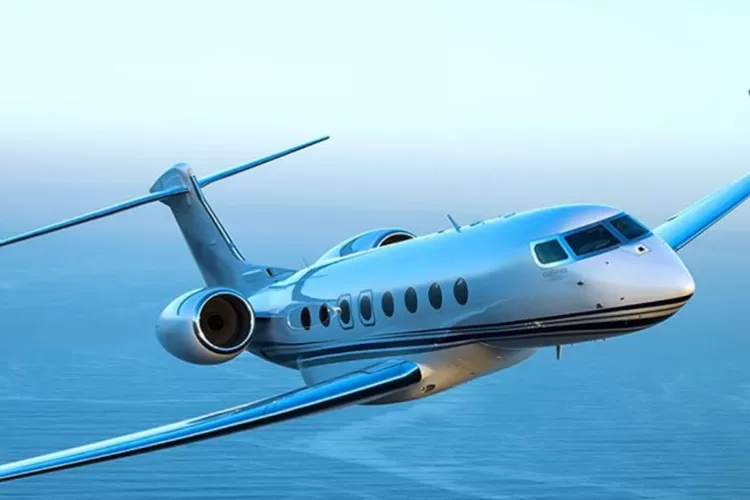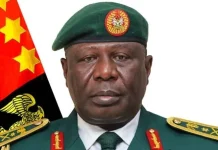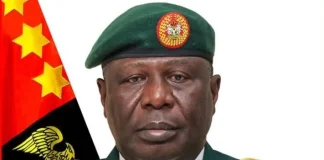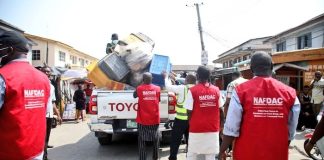🌿 Ruzu Non-Alcoholic Herbal Bitters
Ruzu Non-Alcoholic Herbal Bitters is a natural health supplement specially formulated to:
- ✅ Promote general wellness
- ✅ Detoxify the body
- ✅ Support the treatment of various ailments
Made from a powerful blend of 100% organic and medicinal herbs, Ruzu is completely alcohol-free, making it ideal for:
- 👪 All age groups
- 🌱 Health-conscious individuals
- 🌿 Anyone seeking non-alcoholic herbal remedies
Whether you're looking to boost your vitality, cleanse your system, or support healing the natural way, Ruzu Bitters offers a trusted herbal solution.
The private charter aviation industry in Nigeria has long been plagued by accusations of regulatory evasion, especially with regard to foreign-registered aircraft imported into the nation via Temporary Import Permits (TIPs).
The dispute centers on a conflict between two important regulatory organizations: the Nigerian Civil Aviation Authority (NCAA), which is tasked with overseeing air operations, and the Nigeria Customs Service (NCS), which is in charge of collecting import tariffs. Although the Customs and Excise Management Act (CEMA) requires stringent compliance with duty payments, NCAA regulations have given operators some operational flexibility. Because operators are taking advantage of gaps to evade compliance, the resulting gray area has become a breeding ground for abuse.
Law Regarding Temporary Imports
The Customs and Excise Management Act (CEMA) 2004 permits importers to enter Nigeria under “temporary admission” under Section 12 as long as the items are converted to “home use” or reexported within a certain time frame with the relevant duty paid. If the goods—in this case, an aircraft—remain in Nigeria after the predetermined amount of time, the import duty will become due, according to the legislation.
A maximum of 12 months of temporary entrance for aircraft has normally been permitted by customs practice; this can be extended in 6-month increments but cannot be extended for more than two years. After that, the plane needs to be exported or regularized for “home use” by paying the import tax.
In Nigeria’s aviation industry, however, this law has been regularly broken. Aircraft that ought to have been regularized or reexported years ago have stayed in the nation, some of them since 2008. They are nevertheless engaged in profitable charter operations without paying customs duties.
The Opinion of the NCAA
On the other hand, foreign-registered aircraft may operate under specific circumstances under NCAA’s Civil Aviation Regulations (Nig.CARs 2015, Part 18, Section 18.3.4), as long as they are in compliance with NCAA’s operational control and possess valid certifications of airworthiness. Without having to deal with the Customs issue, this has been the legal justification for operators to fly foreign-registered aircraft within Nigeria.
Customs’ demand for import duties and NCAA’s approval of foreign-registered enterprises have created a gap that is ready for abuse. Because they already pay NCAA costs for landing, parking, and aviation navigation, operators contend that Customs’ demand is “double taxation.”
TopBrass Aviation CEO Captain Roland Iyayi provides a viewpoint that makes sense from both angles. The money that an aircraft owner or operator pays to the NCAA or other organizations is for services, he clarified. This is import duty that Customs is requesting. Similar to importing a car, paying duty independently of roadworthiness or license costs is also the case for airplanes. The law is in favor of customs.
According to Iyayi, not all operators have fulfilled their promises to regularize, even though some initially enjoyed a reprieve when Customs sealed their aircraft.
For temporary entry, two years are allotted. The vast majority of those you mention have been in the nation since 2008. They are well-aware of their tactics. Due to the ICAO conventions, some even filed a lawsuit to thwart Customs. However, the ICAO is more concerned with commercial than private aircraft. The courts deemed those arguments to be unfounded.
Cooling NCS National Public Relations Officer Abdullahi Maiwada explained the agency’s position: “If privately owned aircraft are imported on temporary admission, there is a specified period for them to remain in the country.” After that, they need to be converted for domestic use or reexported, with duty paid. You can return your airplane after 90 days if you imported it on temporary admission. But you’ll have to regularize if you stay too long. That is the law.
Investigations are still underway, Maiwada emphasized, even though Customs does not maintain an accurate public count of planes that have been overstayed.
According to him, the problem arose from an attempt to determine how many aircraft had overstayed without being regularly scheduled.
John Ojikutu (rtd.), the group captain and previous commander of Murtala Muhammed Airport in Lagos, stated that the problem is indicative of Nigeria’s poor regulatory alignment.
He highlighted obvious errors, saying, “It’s like bringing in a foreign-registered car you plan to keep here if you bring in a foreign-registered airplane that is operating in Nigeria.” It must be exported or re-registered after a certain period. It is illegal and irregular what we see currently, when foreign-registered aircraft have been operating locally for years without re-registration.
Political interference was blamed by Ojikutu for slanting the enforcement process, saying, “These things were not happening before.” What is causing them to occur now? It is against the law to drive a foreign-registered aircraft into this country without re-registering it. The NCAA has to make its position plain. I believe that foreign-registered aircraft operating on local routes for an indefinite period of time is illegal.
Enforcement Measures by Customs
Historically, Customs has not been passive. The severity of the problem is highlighted by an enforcement effort timeline:
In June 2024, NCS declared that it would ground roughly 60 foreign-registered aircraft due to unpaid charges. Operators were called to verify in Abuja.
Demand letters were sent, and the exercise was extended to more than 80 aircraft in July 2024.
August 2024: Customs maintained duty demands while easing grounding following high-level initiatives.
June 2025: 86 operators submitted documentation, of whom 57 were cleared and 29 were liable for duty, according to Customs. Many others did not appear.
Read Also: Nigerian Soldiers Nab Suspects, Seize Illegal Oil in Niger Delta
Enforcement has been inconsistent despite these efforts, since political meddling and drawn-out talks have slowed down prompt action.
Customs and NCAA: A Complicated Intersection
A conflict between institutions is at the heart of this story. Under the Customs and Excise Management Act, an airplane entering Nigeria is just considered an imported good by Customs. Commercial use in Nigeria renders it no longer “temporary” in any significant sense; duty must be paid before it can be imported for domestic use.
The airplane mostly serves as an operational issue for the NCAA. Air Transport Licenses, Air Operator’s Certificates, and Permits for Non-Commercial Flights are issued by the NCAA, which also makes the sole decision about who is allowed to transport passengers for pay or hire. According to this viewpoint, a foreign-registered aircraft is permitted to fly charter routes under the correct NCAA authorization.
There is a definite difference. While Customs insists on charges for commercial operations, the NCAA maintains that it is the only entity that can control whether or not such operations are allowed. Operators have discovered an area of great maneuverability in between.
One aviation consultant remarked, “This is not just about safety or operational approval.” It’s about economic justice. Local operators cannot pay billions of dollars in import duties while others are allowed to fly around for as long as they want on temporary permits. There are no equal opportunities there.
The Grey Areas Are Being Exploited
It has become easier for operators to take advantage of the gaps between these two regimes. Some TIPs are repeatedly renewed, so converting a temporary measure into a multi-year authorization. While operating profitable charters in secret, some declare aircraft for private or demonstration use. Some rely on NCAA clearances to verify their legality, even if their Customs documentation is questionable.
However, charter operators provide self-defense. According to one operator from Lagos who wished to remain anonymous, “It’s not that we don’t want to comply.” But the NCAA approves us, the process for complete importation is uncertain, and the customs are very hefty. Customs and the NCAA must unify their stances. We are trapped in the midst at the moment.
The approach is political in addition to being regulatory. Wealthy owners frequently use attorneys and contacts to stall or slacken enforcement. The planes have occasionally been able to continue operating and making money because Customs has been forced into negotiations or had its seizures contested in court. The agreement seems like unfair competition to local charter companies that have paid full customs, imported aircraft legally, and put up with the registration process.
Estimating the Price
There is a significant financial cost to the Federal Government. As one of the most valuable imports, aircraft are subject to customs and taxes that range from 12 to 15 percent of the Cost, Insurance, and Freight (CIF) value, according to Customs. It might be more than $5 million, or over N8 billion at the current exchange rate, on a $25 million plane. That rapidly adds up to tens of billions of naira when multiplied by dozens of jets.
There is the matter of regulatory integrity in addition to revenue. Trust in enforcement is damaged if an airplane is allowed to remain on the tarmac in Lagos or Abuja for years while only having a temporary permit. There are also concerns about safety and options for passengers. Distinguishing culpability in an incident with a jet operating on the edge of legality may be more difficult than for an aircraft registered in Niger officially.
Periodic crackdowns won’t be enough to close these gaps. Experts recommend that the NCAA and Customs work together more closely. The exact moment that an aircraft’s use transitions from temporary to commercial, resulting in duty requirements, could be specified in a memorandum of understanding. In addition to preventing silent rollovers, a centralized TIP registry that is available to both agencies would increase openness. Efficient resolution of conflicts and appropriate penalties would guarantee equitable and efficient enforcement.
















